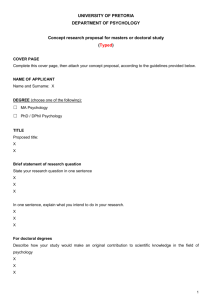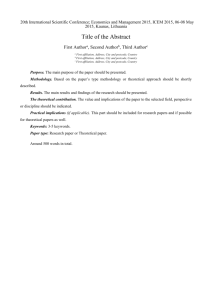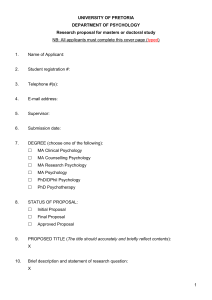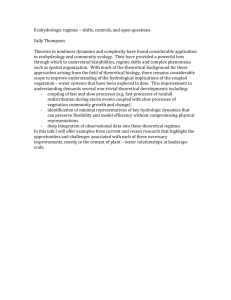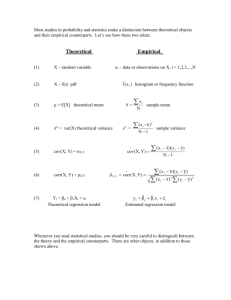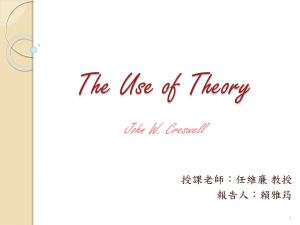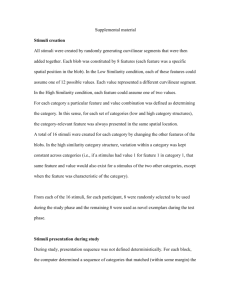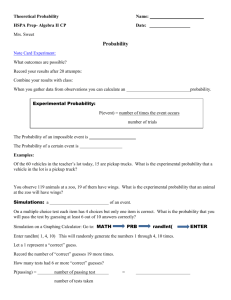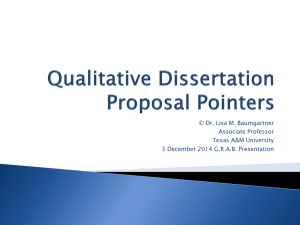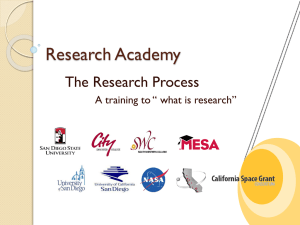APA style: Structure of a Research Report/Proposal
advertisement
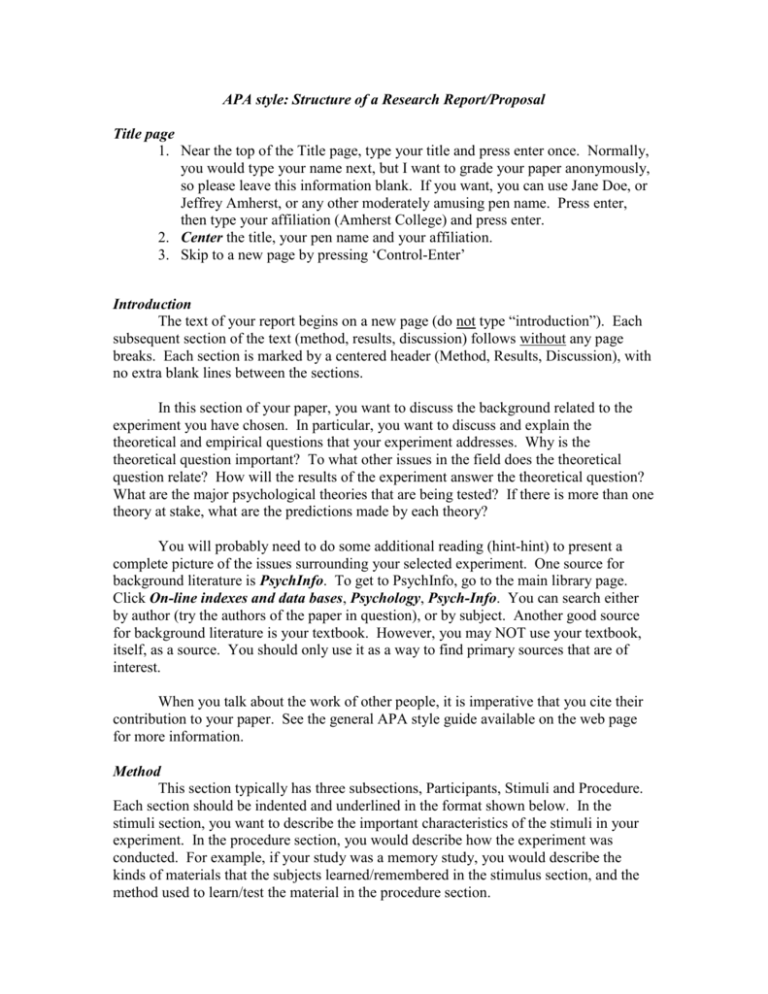
APA style: Structure of a Research Report/Proposal Title page 1. Near the top of the Title page, type your title and press enter once. Normally, you would type your name next, but I want to grade your paper anonymously, so please leave this information blank. If you want, you can use Jane Doe, or Jeffrey Amherst, or any other moderately amusing pen name. Press enter, then type your affiliation (Amherst College) and press enter. 2. Center the title, your pen name and your affiliation. 3. Skip to a new page by pressing ‘Control-Enter’ Introduction The text of your report begins on a new page (do not type “introduction”). Each subsequent section of the text (method, results, discussion) follows without any page breaks. Each section is marked by a centered header (Method, Results, Discussion), with no extra blank lines between the sections. In this section of your paper, you want to discuss the background related to the experiment you have chosen. In particular, you want to discuss and explain the theoretical and empirical questions that your experiment addresses. Why is the theoretical question important? To what other issues in the field does the theoretical question relate? How will the results of the experiment answer the theoretical question? What are the major psychological theories that are being tested? If there is more than one theory at stake, what are the predictions made by each theory? You will probably need to do some additional reading (hint-hint) to present a complete picture of the issues surrounding your selected experiment. One source for background literature is PsychInfo. To get to PsychInfo, go to the main library page. Click On-line indexes and data bases, Psychology, Psych-Info. You can search either by author (try the authors of the paper in question), or by subject. Another good source for background literature is your textbook. However, you may NOT use your textbook, itself, as a source. You should only use it as a way to find primary sources that are of interest. When you talk about the work of other people, it is imperative that you cite their contribution to your paper. See the general APA style guide available on the web page for more information. Method This section typically has three subsections, Participants, Stimuli and Procedure. Each section should be indented and underlined in the format shown below. In the stimuli section, you want to describe the important characteristics of the stimuli in your experiment. In the procedure section, you would describe how the experiment was conducted. For example, if your study was a memory study, you would describe the kinds of materials that the subjects learned/remembered in the stimulus section, and the method used to learn/test the material in the procedure section. Method Participants. Stimuli. Procedure. Results If you (or the class) collected data, the results section should include either a graph or a description of how the data looked. If you are completing a research proposal, your results section will include a description of what you expect the results would be if your experiment was conducted. You may include a figure or table of expected results if you think it will help you communicate the expected pattern to your reader. However, a figure alone is not sufficient. You must explain the interesting / important features of the data to the reader. Discussion The discussion section begins by summarizing the project and explaining the implications of the results. You should be sure to compare the results obtained (or expected) with those reported in the literature. Discuss potential reasons for the discrepancies. Finally, the discussion should touch on broader issues. For example, what implications does this research have for cognitive psychology or memory research, in general? What are the limitations of the study, and more importantly, how might you overcome these limitations yourself? Would correcting these limitations alter the theoretical interpretation of the data? What other questions does the study raise? How might you design an experiment to answer those questions? You also might discuss what implications this study has in the ‘real-world’.
